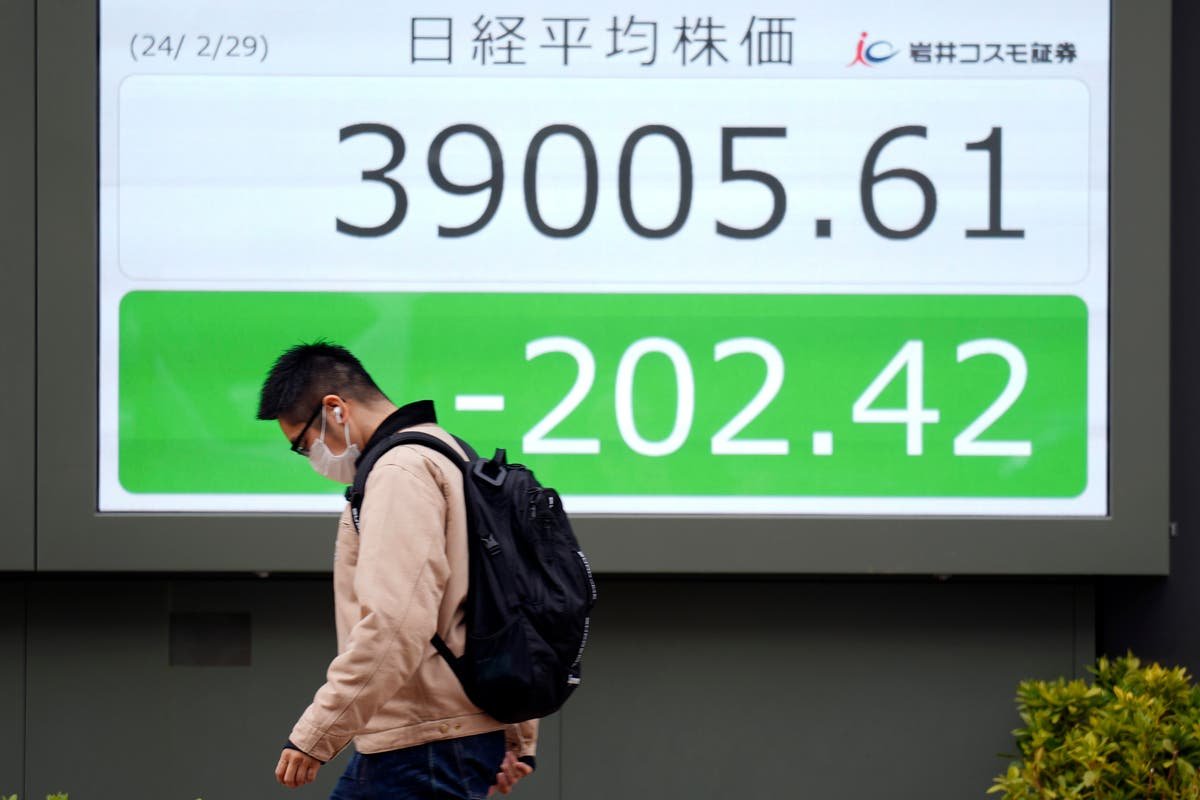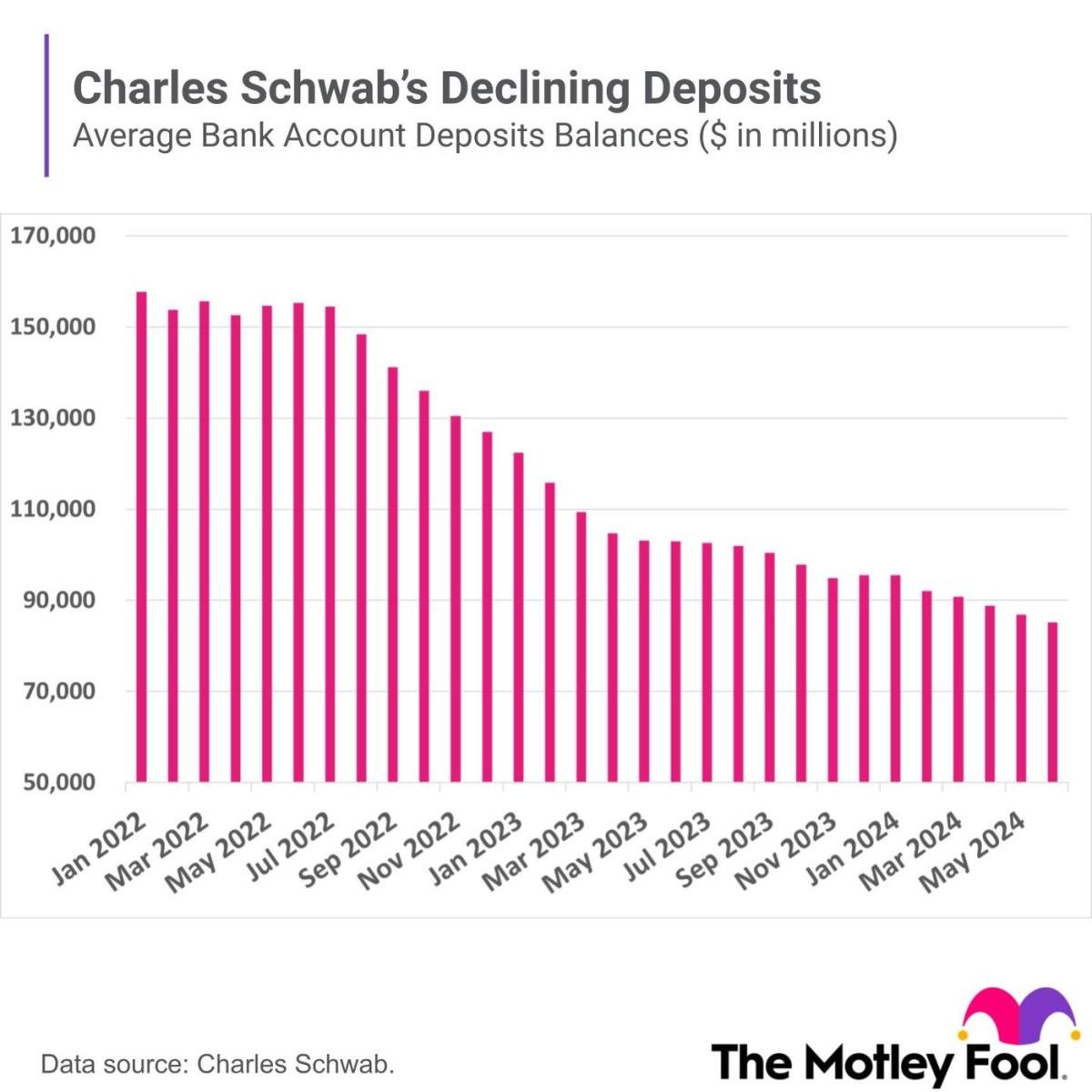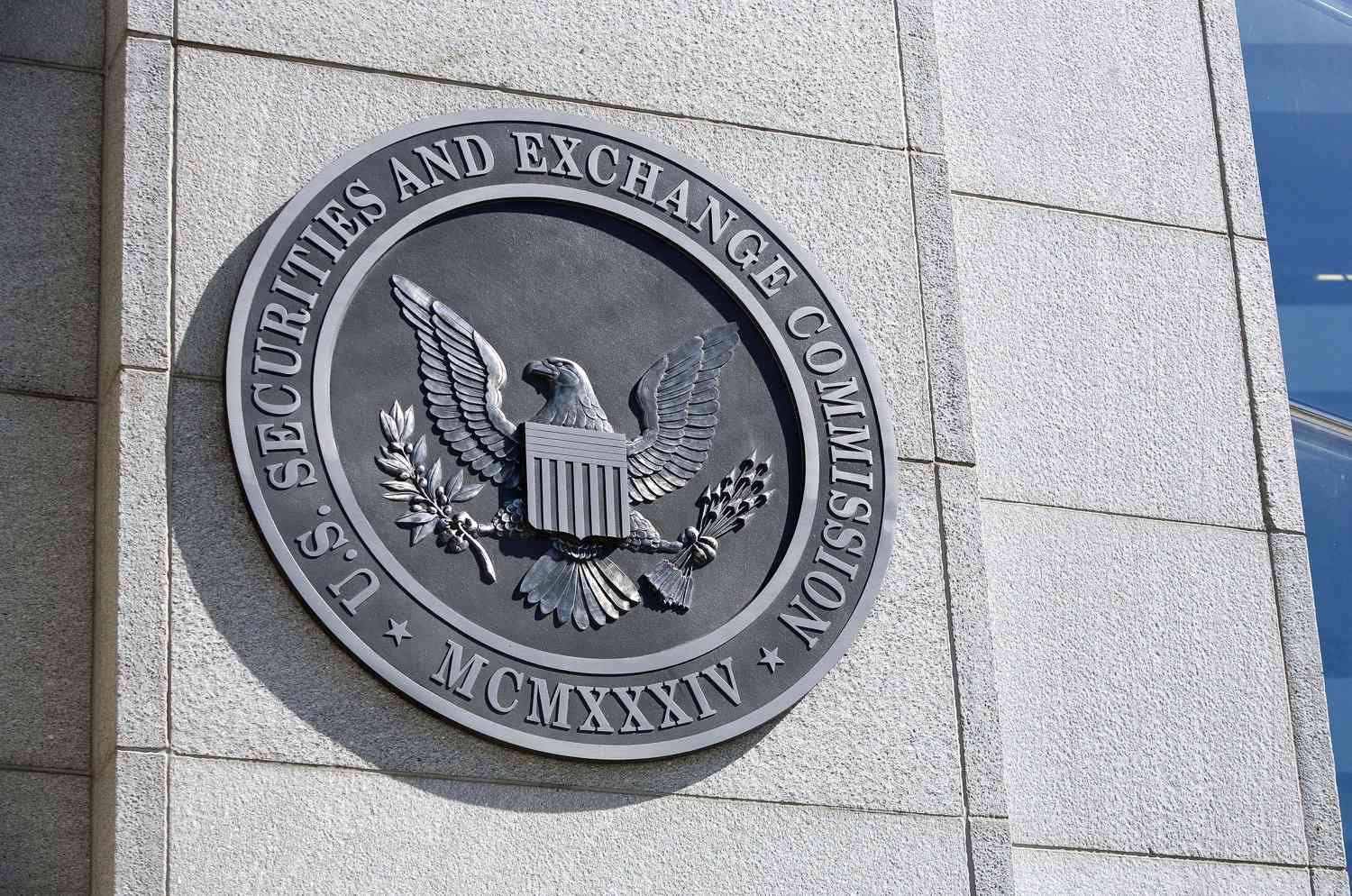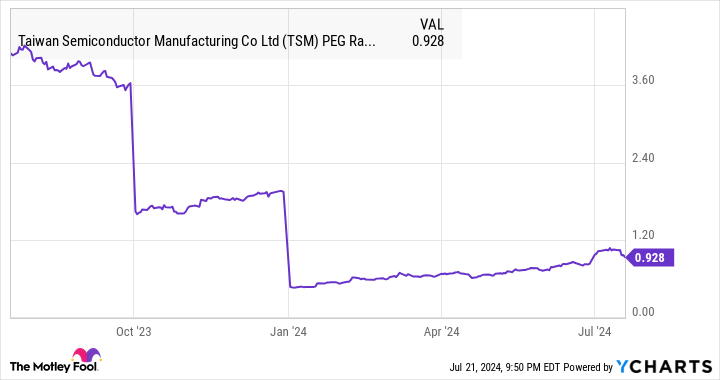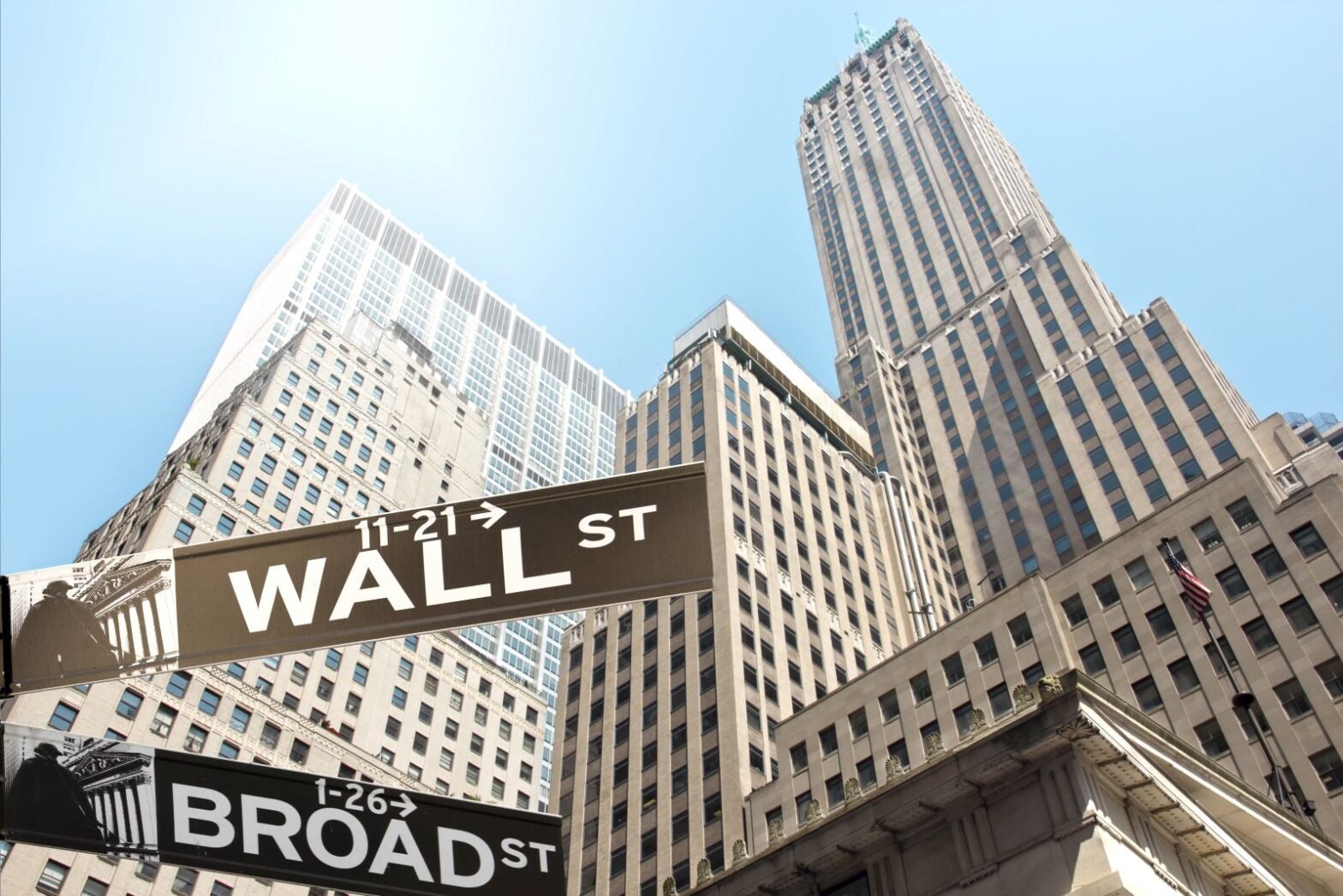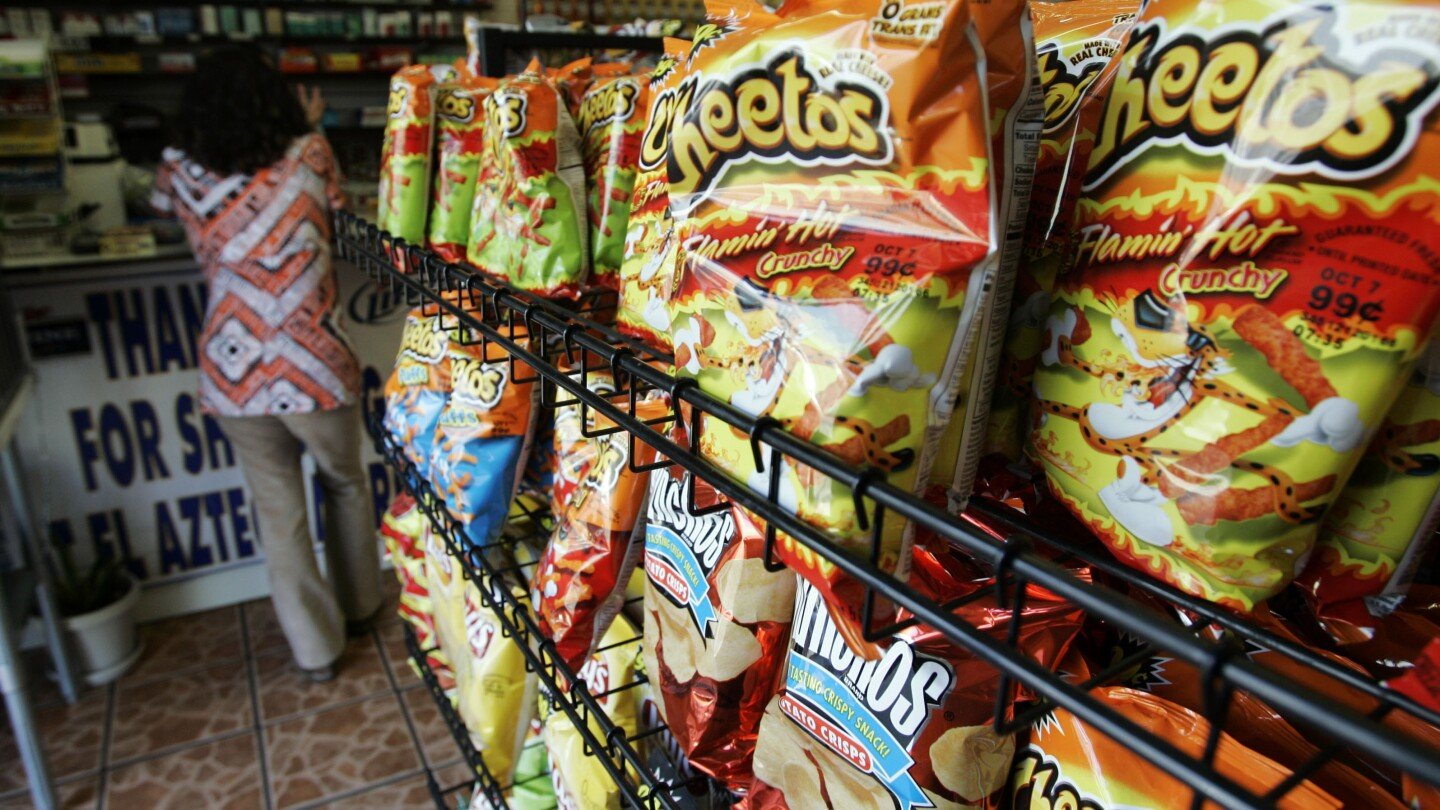
For free real time breaking news alerts sent straight to your inbox sign up to our breaking news emails
Sign up to our free breaking news emails
Shares were mixed in Asia on Thursday after a lackluster day on Wall Street, where selling of technology stocks pulled benchmarks lower.
U.S. futures were flat and oil prices also were barely changed.
Tokyo’s Nikkei 225 index was down 0.1% at 39,166.19 after data showed factory output falling in January at the fastest pace since May 2020, although retail sales were stronger than expected.
Hong Kong’s Hang Seng added 0.4% to 16,604.18 and the Shanghai Composite index jumped 1.9% to 3,012.68. The smaller index in Shenzhen was up 3.4% after regulators released new measures to support markets including closer oversight of financial derivatives.
But technology services company Baidu was down 6.9% after reporting its profit fell 48% in the October-December quarter due to higher spending as it strives to keep up with rivals in the artificial intelligence field.
South Korea’s Kospi slipped 0.4% to 2,642.36 while the S&P/ASX 200 gained 0.5% to 7,698.70. Bangkok‘s SET lost 0.4% and the Sensex in India was up 0.1%.
On Wednesday, the S&P 500 slipped 0.2%, to 5,069.76, continuing its quiet and listless run since setting a record last week. The Dow Jones Industrial Average dipped 0.1% to 38,949.02. The Nasdaq composite sank 0.5%, to 15,947.74, a day after pulling within 0.1% of its record set in 2021.
Treasury yields also eased in the bond market after a report said the U.S. economy likely grew a touch slower in late 2023 than earlier estimated. The economy continues to defy expectations of a recession despite high interest rates meant to bring down inflation.
A 1.3% drop for Nvidia and 1.8% slump for Google’s parent company, Alphabet, were two of the heaviest weights on the market. They’re among a small group of Big Tech stocks that have been disproportionately responsible for the S&P 500’s run to records.
Such concentration in the market can be a concerning signal, according to Scott Wren, senior global market strategist at Wells Fargo Investment Institute. Broad gains among a wide variety of stocks are typically a more favorable sign that the market’s strength is sustainable.
Bumble tumbled 14.8% after it reported weaker results for the latest quarter than analysts expected. The dating and friend-making app company, which recently revamped its leadership team, also gave a forecast for revenue this upcoming year that fell short of analysts’ expectations.
Boston Beer, the company behind Samuel Adams, slid 15.8% after reporting a larger loss than analysts expected. It was hurt by declines for its Truly hard seltzer.
Urban Outfitters dropped 12.8% after the retailer reported weaker results than expected. The company, which also runs Anthropologie stores, said sales are continuing to weaken at its Urban Outfitters locations.
Helping to limit the market’s losses was eBay, which rose 7.9% after reporting stronger results than analysts expected. Axon Enterprise, the company that sells Tasers, body cameras and other equipment, also turned in a better-than-expected profit report, and its stock jumped 13.8%.
Coinbase gained 0.8% after rising more earlier in the day to continue its strong run as bitcoin’s price keeps rallying. New exchange-traded funds that make investing in bitcoin easier have raised interest in the cryptocurrency, with BlackRock’s iShares Bitcoin fund alone quickly growing to $7 billion in assets.
Bitcoin’s price briefly topped $64,000 Wednesday for the first time since 2021. It’s pulling closer to its record of nearly $69,000 after rising more than 40% so far this year.
Coinbase’s CEO, Brian Armstrong, apologized to customers during the day for issues they encountered because the company was “dealing with a LARGE surge of traffic” as bitcoin’s price soared. The company said some users may have seen a zero balance across their accounts and had errors in buying and selling.
Beyond Meat surged 30.7% even though it reported much weaker results for the latest quarter than expected. Its revenue was slightly better than forecast after falling less than expected, and it said its profitability will likely increase through 2024.
In other trading Thursday, U.S. benchmark crude oil gained 2 cents to $78.56 per barrel in electronic trading on the New York Mercantile Exchange.
Brent crude, the international standard, was up 1 cent at $82.16 per barrel.
The U.S. dollar fell to 149.78 Japanese yen from 150.69 yen. The euro rose to $1.0836 from $1.0834.

